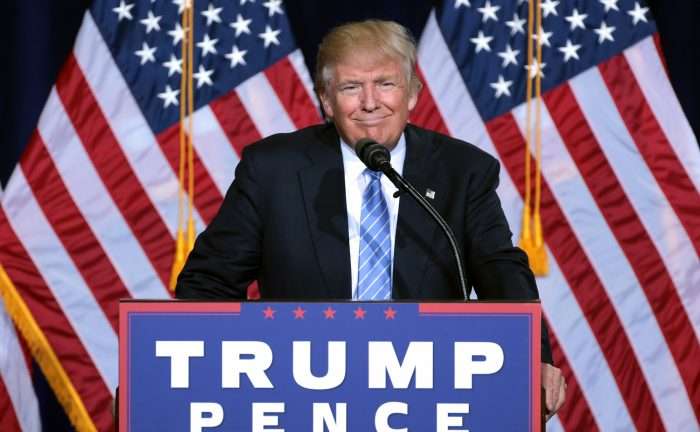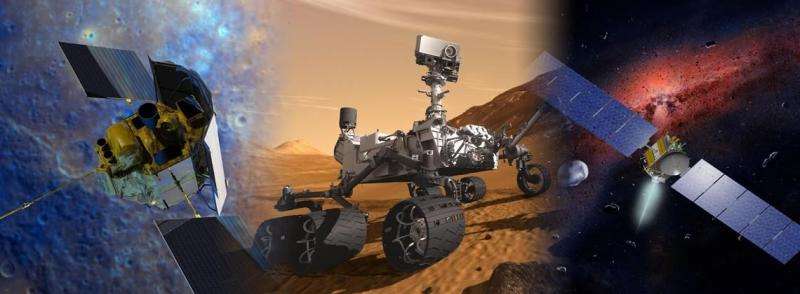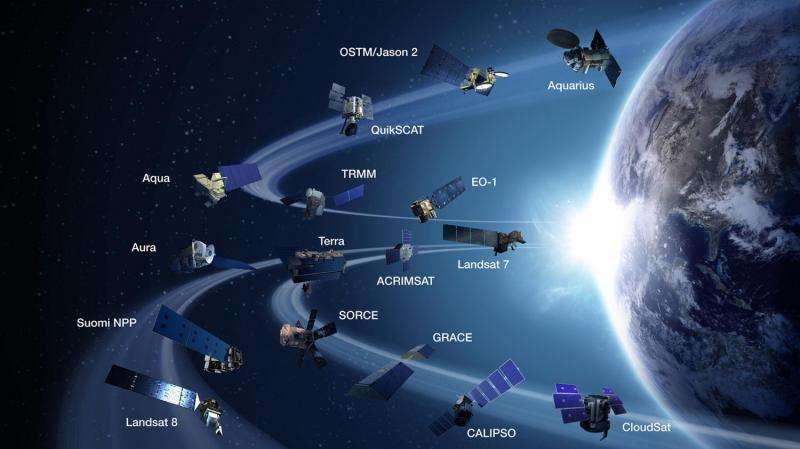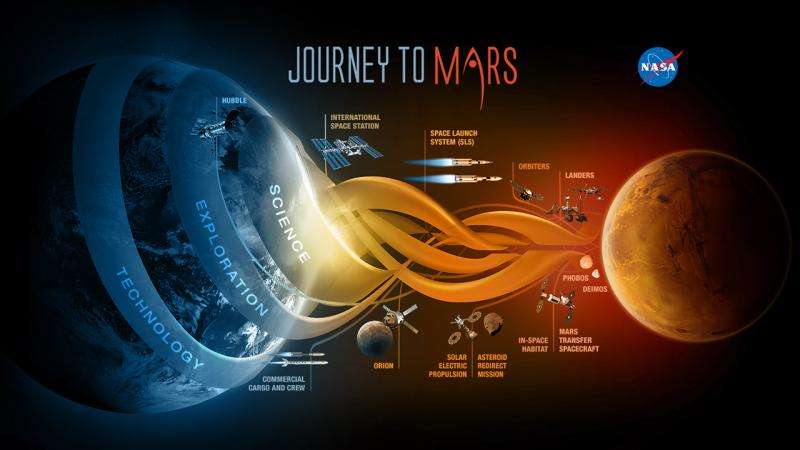Where will President-elect Trump take American space endeavours?

With the 2016 election now finished and Donald Trump confirmed as the president-elect of the United States, there are naturally some concerns about what this could means for the future of NASA. Given the administration's commitment to Earth science, and its plans for crewed missions to near-Earth Orbit and Mars, there is understandably some worry that the budget environment might be changing soon.
At this juncture, it is not quite clear how a Trump presidency will affect NASA's mandate for space exploration and scientific research. But between statements made by the president-elect in the past, and his stances on issues like climate change, it seems clear that funding for certain types of research could be threatened. But there is also reason to believe that larger exploration programs might be unaffected.
Back in September, the Senate Committee on Commerce, Science, and Transportation passed the NASA Transition Authorization Act of 2016. This bill granted $19.5 billion in funding for NASA for fiscal year 2017, thus ensuring that NASA's proposed activities would not be affected by the transition in power. Central to this bill was the continued funding of operations that NASA considered to be central to its "Journey to Mars."
Beyond FY 2017, though, the picture is unclear. When it comes to things like NASA's Earth Science program, the administration of a president that denies the existence of Climate Change is expected to mean budget cuts. For instance, back in May, Trump laid out his vision for an energy policy. Central to this was a focus on oil, natural gas and coal, the cancellation of the Paris Agreement, and the cessations of all payments to the UN Green Climate Fund.
This could signal a possible reverse of policies initiated by the Obama administration, which increased funding for Earth science research by about 50 percent. And as NASA indicated in a report issued on Nov. 2nd by the Office of the Inspect General – titled "NASA's Earth Science Mission Portfolio" – this has resulted in some very favorable developments.

Foremost among these has been the increased in the number of products delivered to users by NASA, going from 8.14 million in 2000 to 1.42 billion in 2015. In other words, usage of NASA resources has increased by a factor of 175, and in the space of just 15 years (much of that in the last 8). Another major benefit has been the chance for collaboration and lucrative partnerships. From the report:
"Government agencies, scientists, private entities, and other stakeholders rely on NASA to process raw information received from Earth observation systems into useable data. Moreover, NASA's Earth observation data is routinely used by government agencies, policy makers, and researchers to expand understanding of the Earth system and to enhance economic competitiveness, protect life and property, and develop policies to help protect the planet. Finally, NASA is working to address suggestions that it use commercially provided data to augment its Earth observation data. However, NASA must reconcile its policy that promotes open sharing of data at minimal cost to users with a commercial business model under which fees may create a barrier to use."
Unfortunately, it has been this same increase in funding that prompted Congressional Republicans, in the name of fiscal responsibility, to demand changes and new standards. These sentiments were voiced back in March of 2015 during NASA's budget request for 2016. As Senator Ted Cruz – currently one of the Trump campaign's backers – said at the time:
"We've seen a disproportionate increase in the amount of federal funds going to the Earth sciences program at the expense of funding for exploration and space operations, planetary sciences, heliophysics, and astrophysics, which I believe are all rooted in exploration and should be central to NASA's core mission. We need to get back to the hard sciences, to manned space exploration, and to the innovation that has been integral to NASA."
While Trump himself has little to say about space during his long campaign, his team did manage to recruit Robert Walker – a former Republican congressman from Pennsylvania – this past October to draft a policy for them. In an op-ed to SpaceNews in late October, he echoed Cruz's sentiments about cutting back on Earth sciences to focus on space exploration:

"NASA should be focused primarily on deep space activities rather than Earth-centric work that is better handled by other agencies. Human exploration of our entire solar system by the end of this century should be NASA's focus and goal. Developing the technologies to meet that goal would severely challenge our present knowledge base, but that should be a reason for exploration and science."
"It makes little sense for numerous launch vehicles to be developed at taxpayer cost, all with essentially the same technology and payload capacity. Coordinated policy would end such duplication of effort and quickly determine where there are private sector solutions that do not necessarily require government investment."
Next, there is the issue of NASA's long-term goals, which (as noted) seem more secure for the time being. In May of 2016, Trump was issued the Aerospace America Questionnaire – a series of ten questions issued by NASA to determine the stances of the candidates on space exploration. On the subject of a crewed mission to Mars in the future, Trump's campaign indicated that things would depend upon the state of the country's economy:
"A lot of what my administration would recommend depends on our economic state. If we are growing with all of our people employed and our military readiness back to acceptable levels, then we can take a look at the timeline for sending more people into space."
However, they also professed an admiration for NASA and a commitment to its overall goal:

"NASA has been one of the most important agencies in the United States government for most of my lifetime. It should remain so. NASA should focus on stretching the envelope of space exploration for we have so much to discover and to date we have only scratched the surface."
From all of this, a general picture of what NASA's budget environment will look like in the near future begins to emerge. In all likelihood, the Earth Science division (and other parts of NASA) are likely to find their budgets being scrutinized based on newly-developed criteria. Essentially, unless it benefits space exploration and research beyond Earth, it's not likely to see continued funding.
But regardless of the results of the election, it appears at this juncture that NASA is looking forward with cautious optimism. Addressing the future, NASA Administrator Charles Bolden issued an internal memo on Wednesday, Nov. 9th. Titled "Reaching for New Heights in 2017 and Beyond", Bolden expressed positive thoughts about the transition of power and what it would mean:
"In times when there has been much news about all the things that divide our nation, there has been noticeable bipartisan support for this work, our work – support that not only reaches across the aisle, but across the public, private, academic and non-profit sectors.
"For this reason, I think we can all be confident that the new Trump Administration and future administrations after that will continue the visionary course on which President Barack Obama has set us, a course that all of you have made possible."
For NASA's sake, I hope Bolden's words prove to be prophetic. For no matter who holds of the office of the President of the United States, the American people – and indeed, all the world's people – depend upon the continued efforts of NASA. As the leader in space exploration, their presence is essential to humanity's return to space.
Source: Universe Today





















